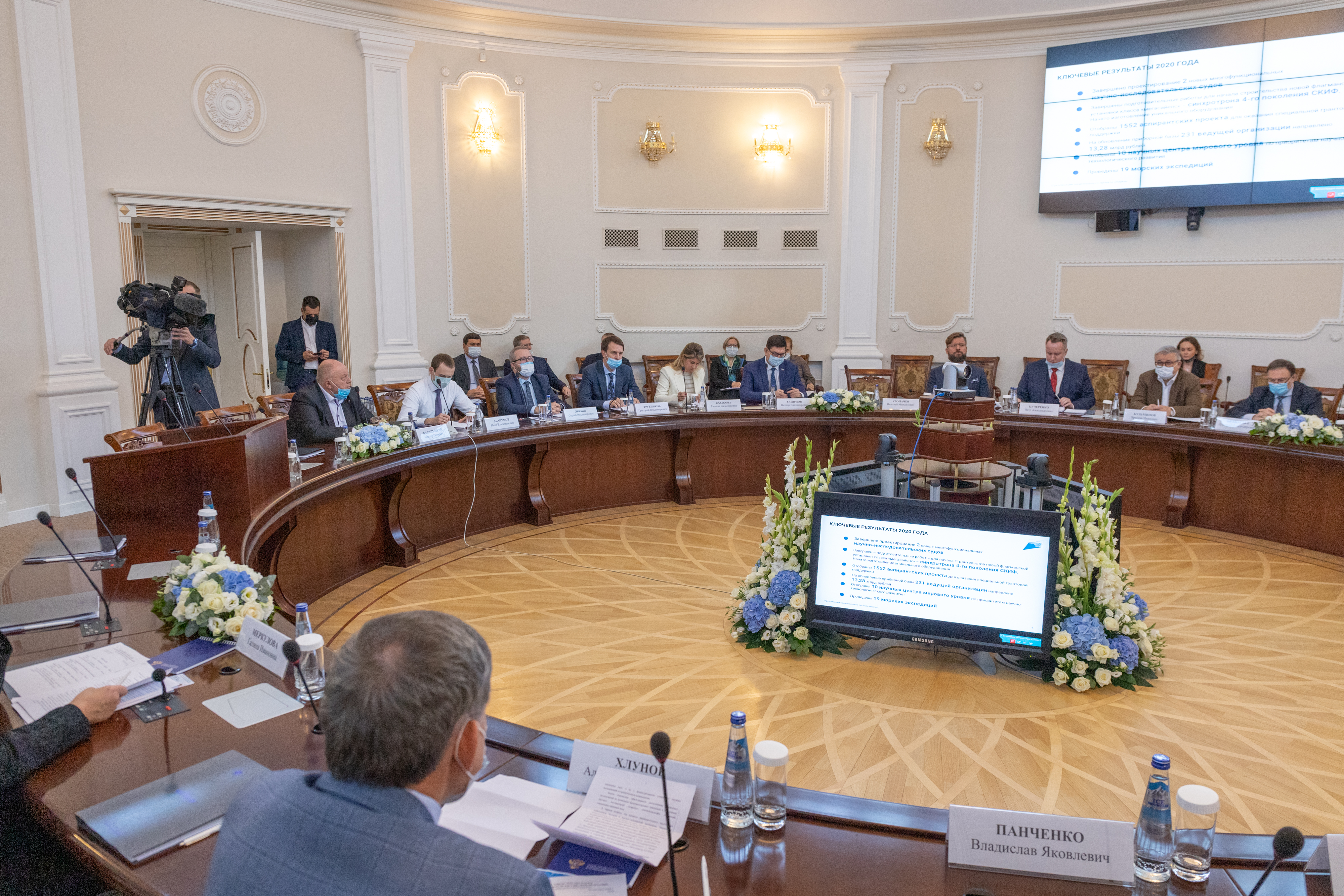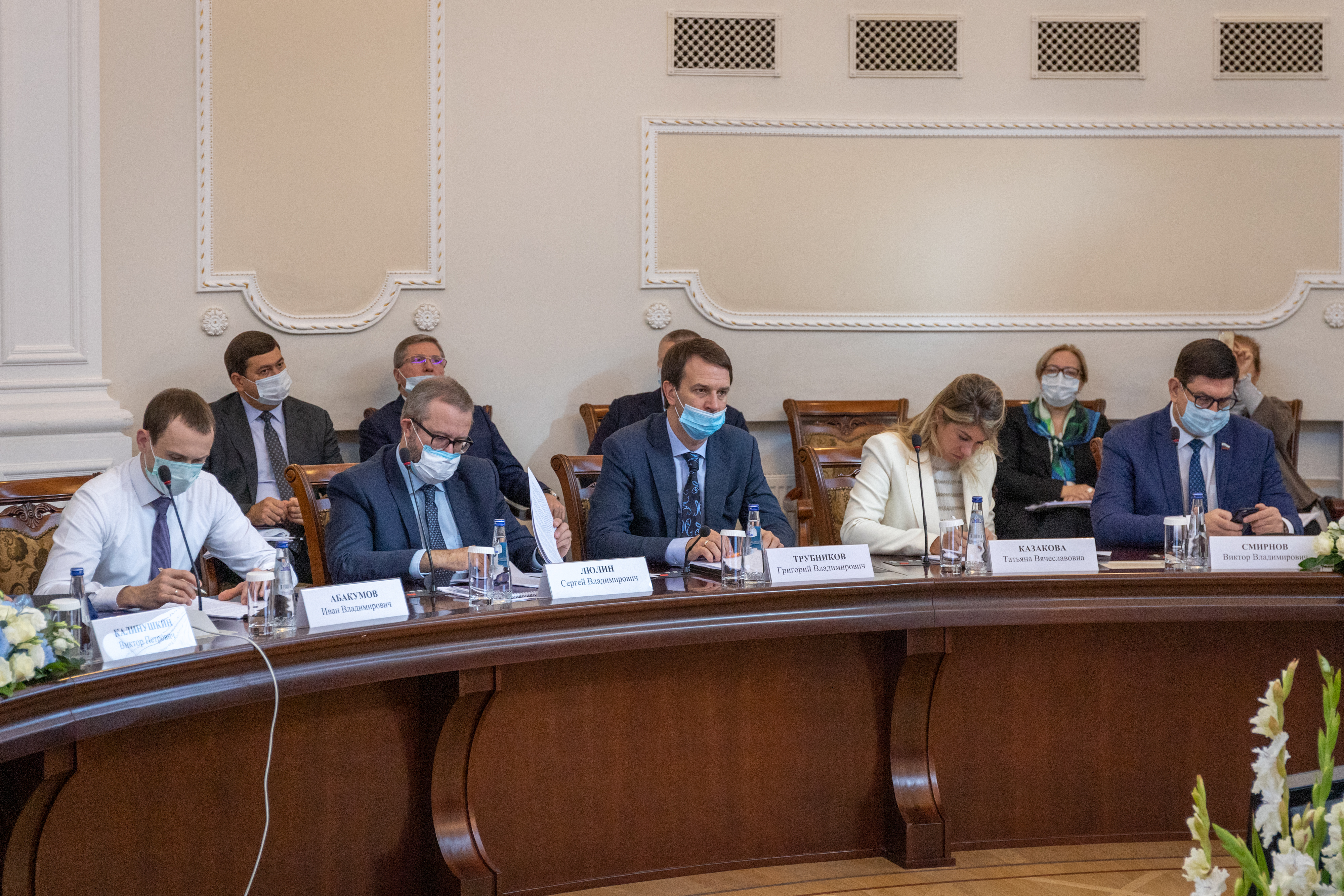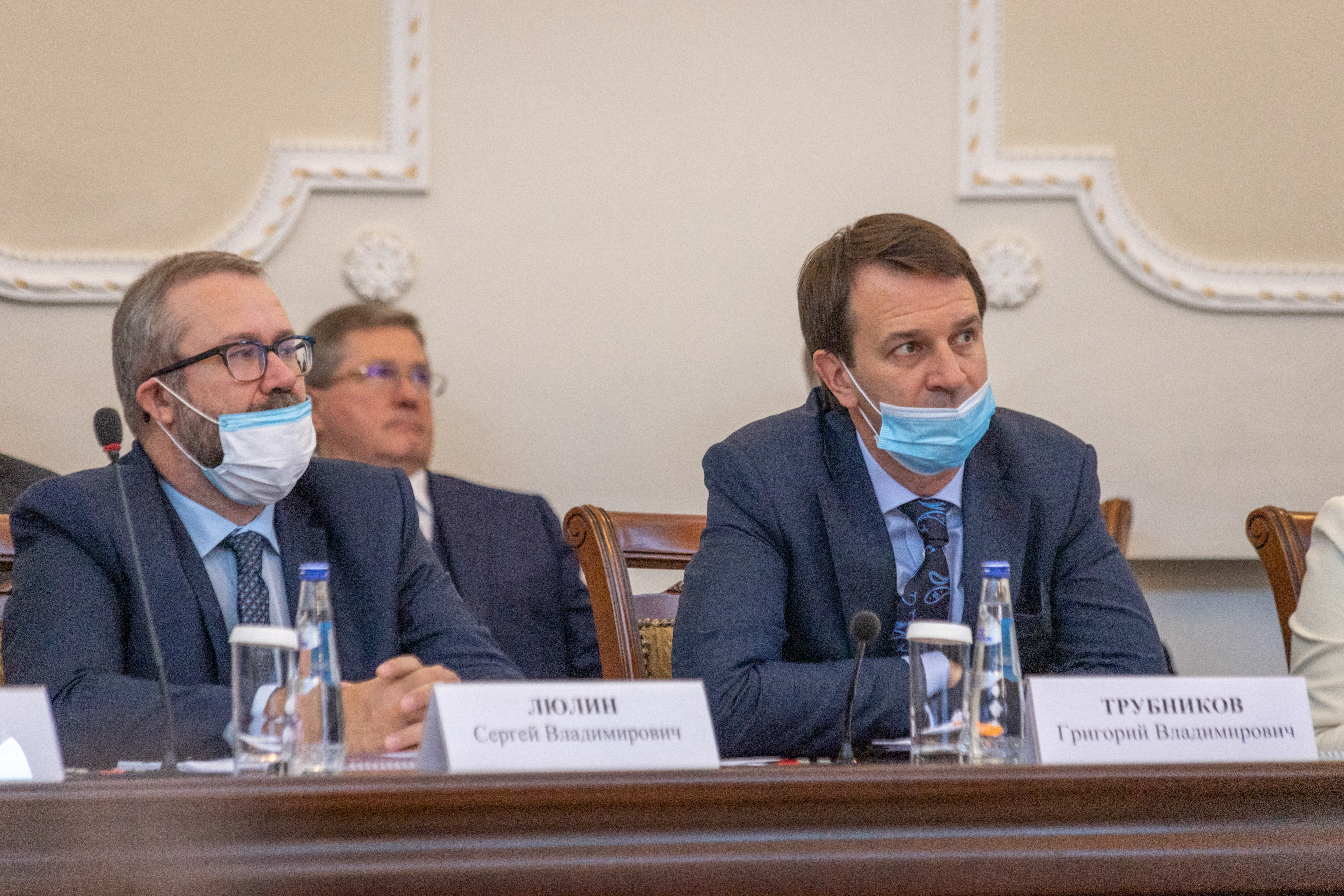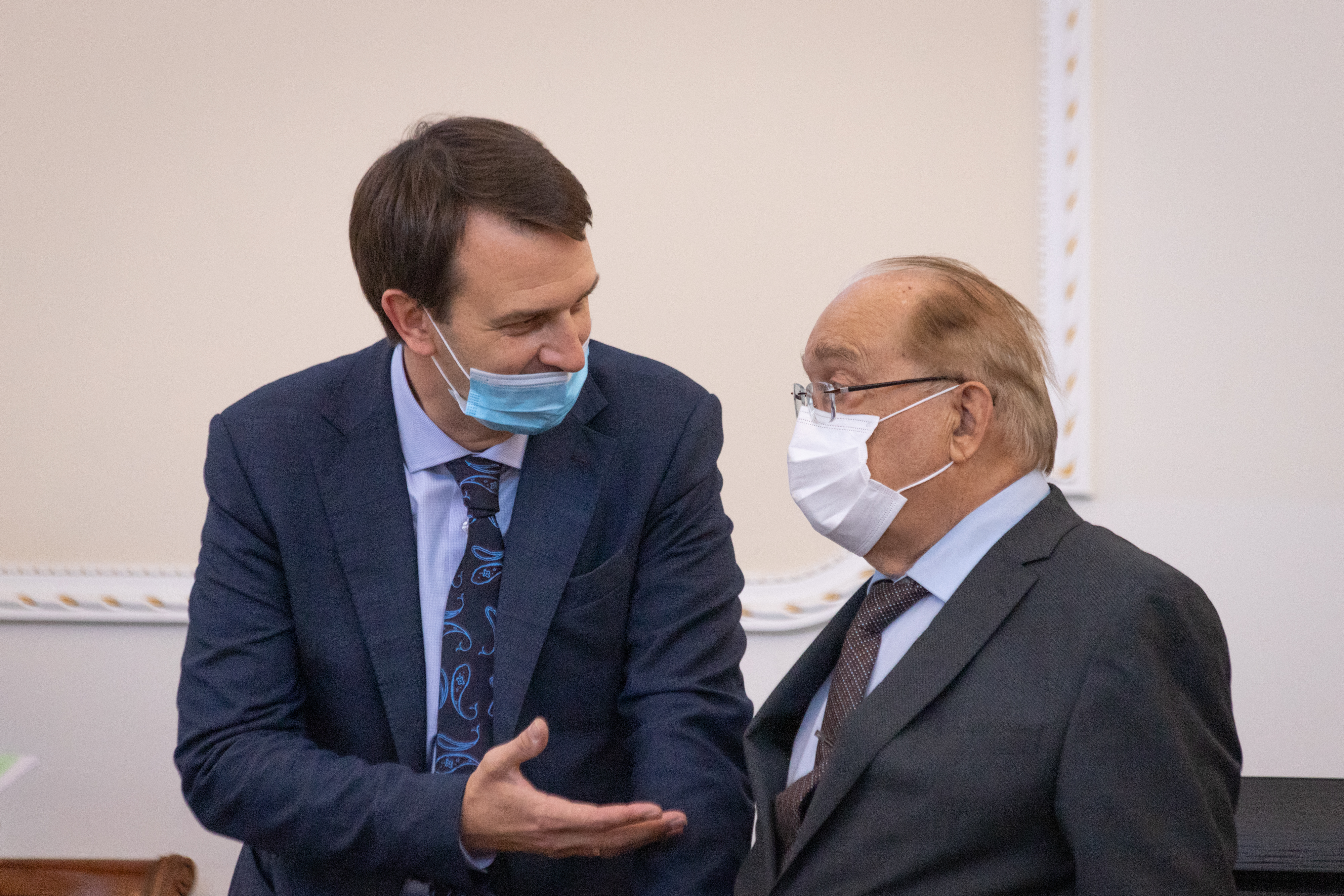G. V. Trubnikov participated in the meeting of Minobrnauki College
News, 29 September 2020
On 29 September, a meeting of the College of the Ministry of Science and Higher Education of the Russian Federation was held by Minister of Science and Higher Education of the Russian Federation Valery Falkov. Participants of the meeting were representatives of the scientific community and executive authorities of regions. The meeting was attended by JINR First Vice-Director Academician G. V. Trubnikov.
Members of the College discussed the progress in the implementation of the national projects “Nauka” and “Obrazovanie” in the frames of responsibilities of the Ministry of Science and Higher Education of Russia.
Reporting on the implementation progress of the national project “Nauka”, Deputy Minister of Science and Higher Education of Russia Andrey Omelchuk announced the following: “The implementation of the national project “Nauka” in 2020 is underway according to the schedule despite some challenges caused by the epidemiological situation.”
He also added that as of September 2020, the cash execution of the budget of the national project is 57,2 %. At the same time, major decisions for the distribution of the budget left have been already made. At the moment, the design of two new multifunctional scientific and research crafts has been already completed in the frames of the Nauka project’s implementation. Their construction will start shortly. Moreover, preparations for the construction of the Centre for Collective Use “SKIF” have been completed, and the production of unique scientific equipment was launched. 231 scientific organizations received finance for renovation of the instrument base, and 13,2 billion rubles have been already spent. 10 world-level scientific centres have been selected ahead of schedule that conduct studies and developments for priorities of scientific and technological development. Furthermore, 19 marine expeditions have been carried out, and 1,500 post-graduate projects have been selected to provide them with grant support.
In addition, until the end of this year, it is planned to select not less than 5 world-level scientific and educational centres, 15 seed selection and breed selection centres, not less than 30 projects on the creation of world-level laboratories headed by leading foreign scientists. Moreover, it is planned to finish the programme of marine expeditions, as well as to draft the Decree of the Government of the Russian Federation No. 218 “Development of cooperation between Russian universities, scientific institutions and manufacturers”.
“According to the instruction of the President of the Russian Federation, and realizing the necessity in additional “adjustment” of national projects, national projects have been renewed, and we see them as a single national project in the fields of science and higher education,” Andrey Omelchuk said.
The implementation of this single national project is supposed to allow reaching until 2030 solid performance of the national aim “Opportunities for personal fulfilment and development of talents” designed to bring the Russian Federation in top-ten countries in terms of the volume of scientific research and developments, including by creating the effective higher education system.
At the same time, it is planned that the key social effects of the implementation of the single national project will be access to high-quality higher education, additional professional training that will provide citizens with the opportunity to improve their professional skills and knowledge, the attractiveness of a career in the fields of science and higher education, as well as the level of penetration of the results obtained from scientific research and developments.
Four federal projects will be included in the single national project: “Development of integrated processes in the fields of science, higher education and industry” (“Integration”), “Development of large-scale scientific and technological projects on priority research fields” (“Research leadership”), “Development of the infrastructure for scientific research and staff training” (“Infrastructure”), “Development of human resources for regions, various fields and the sector of research and developments” (“Staff”).
Based on the materials of Minobrnauki of Russia



